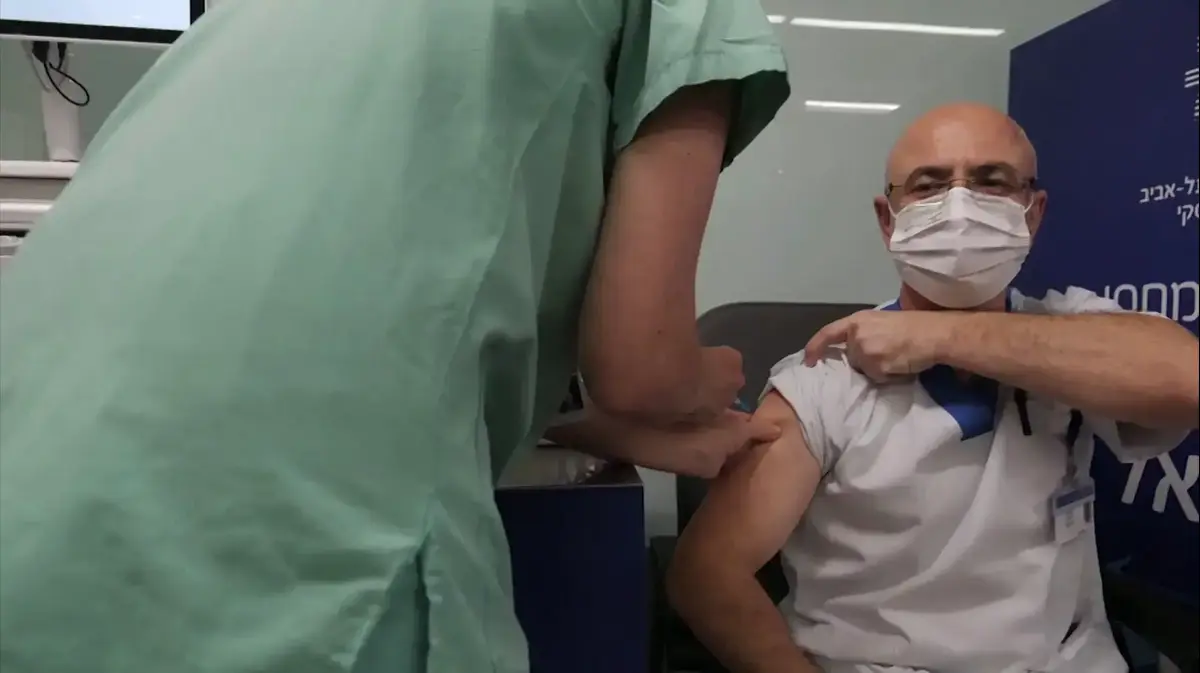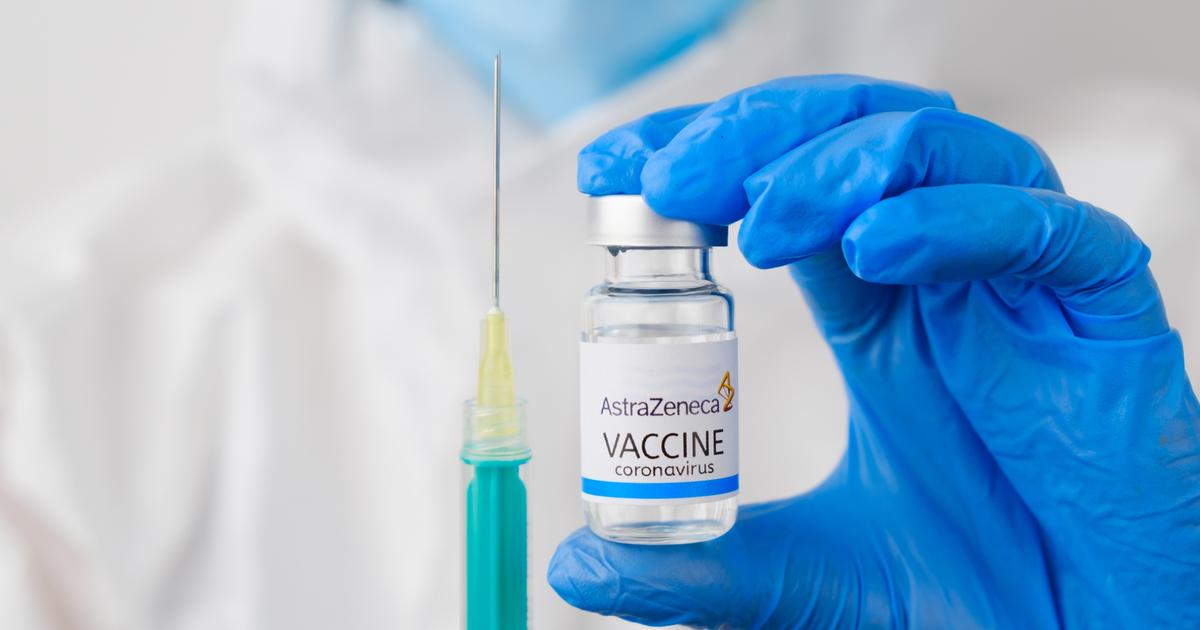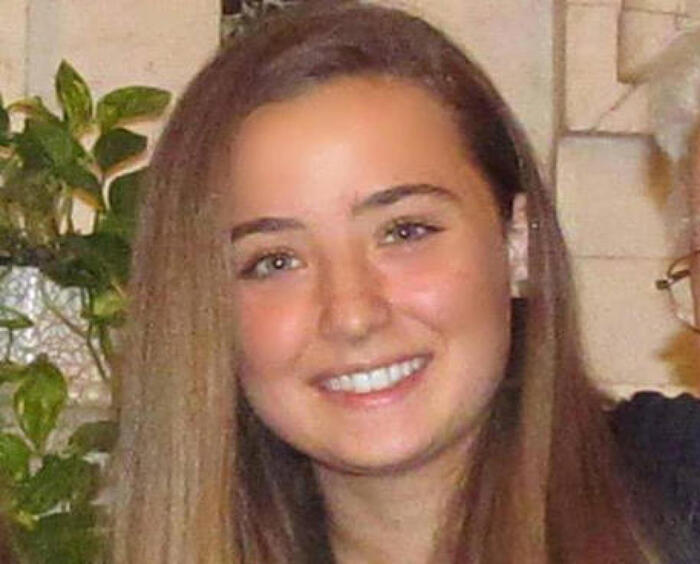The Astrazeneca vaccine can cause rare severe thrombosis, researchers from Germany have found out the reason for this.
Now the experts publish their final observations.
Berlin - They are supposed to help contain the spread of the coronavirus in Germany and the world, but vaccines are getting more and more into the headlines.
The vaccine from the manufacturer Astrazeneca in particular caused uncertainty, as in a few rare cases serious side effects occur after administration.
Researchers at the University Clinic Greifswald discovered the cause of the severe thrombosis back in March, and the experts have now published their final results.
And the active ingredient from the manufacturer Johnson & Johnson currently has to undergo a review.
Serious side effects were also registered here.
Astrazeneca breakthrough: Researchers from Germany find the cause of severe thrombosis
In the
New England Journal
, the experts describe the process after vaccination with the Astrazeneca vaccine as follows: “Vaccination with ChAdOx1 nCov-19 can result in the development of immune-related thrombocytopenia in rare cases, mediated by activated antibodies against PF4
, to have.
The clinical appearance is similar to an autoimmune thrombocytopenia caused by heparin ”.
Accordingly, the rare side effects after an Astrazeneca vaccination are a similar process to severe side effects after heparin therapy.
As early as March, the experts at the University Medical Center Greifswald explained to the scientist Andreas Greinacher what causes the severe thrombosis after vaccination with the Astrazeneca vaccine.
According to this, the vaccine triggers “a defense mechanism” in some people.
The vaccine "activates" the blood platelets, so-called thrombocytes.
This process normally only takes place when the wound is healing, when the blood coagulates.
A wound is normally closed.
However, this mechanism can be triggered by the vaccine, resulting in a blood clot.
Apparently mostly in the brain.
Corona vaccination with Astrazeneca: nurse from Austria index case for examination
In February, the first thrombosis after a vaccination with the active ingredient from the manufacturer Astrazeneca became known, and shortly afterwards researchers from the University of Greifswald turned to the Paul Ehrlich Institute.
The experts were given blood samples from previously affected patients, and the breakthrough came in March.
In their work, the experts from Germany worked closely with doctors and experts from Austria.
As the
courier
reports, the experts are said to have considered the case from Austria as an index case in their research.
The nurse died a few days after being admitted to the hospital.
As the
courier
quotes the researchers, the "until then healthy 49-year-old" was taken to hospital ten days after her Astrazeneca vaccination.
As the researchers explain in the report, she died despite receiving medical treatment.
During an autopsy, a thrombosis in the cerebral veins, i.e. a sinus vein thrombosis, was found.
Astrazeneca vaccination: Serious side effects had increased - scientists explain procedure
Shortly afterwards, more cases had accumulated, and shortly afterwards the experts from Unimedizin Greifswald examined the blood samples of eleven patients from Germany and Austria.
They were all treated for thrombosis or pathological platelet deficiency five to 16 days after an Astrazeneca vaccination, the mean age is said to have been 36 years.
Nine of the eleven people were women.
As the scientists further explain in their paper, they all exhibited “thrombotic events”.
Only in one case did the person concerned have a fatal cerebral haemorrhage.
Of the eleven patients examined, six died after the vaccination.
None of the patients received heparin prior to diagnosis, but the samples indicated such a clinical appearance.
The severe thromboses after an Astrazeneca vaccination would have resembled a complication after treatment with the anticoagulant heparin.
The side effects after vaccination would have been similar to a heparin-induced platelet deficiency.
And indeed: subsequent investigations had shown that all eleven affected had antibodies against platelet factor 4.
As the experts further clarify, however, it was found at the same time that remaining platelets had been activated.
This then led to the thrombosis.
If there is any suspicion, an examination for the platelet deficiency could now be carried out quickly.
As early as March, the experts had made it clear that treatment of the severe thrombosis was only possible after it had been determined, and that it could not be treated preventively.
Astrazeneca: EMA continues to give the green light to the vaccine
For the EMA, however, the benefit of the active ingredient still predominates, serious side effects after an Astrazeneca vaccination only occur in very rare cases.
In Germany, however, only people over the age of 60 are vaccinated with the Astrazeneca vaccine.
Younger people can only receive the active ingredient on express request.
List of rubric lists: © picture alliance / dpa / Matthias Bein











/cloudfront-eu-central-1.images.arcpublishing.com/prisa/KMEYMJKESBAZBE4MRBAM4TGHIQ.jpg)



